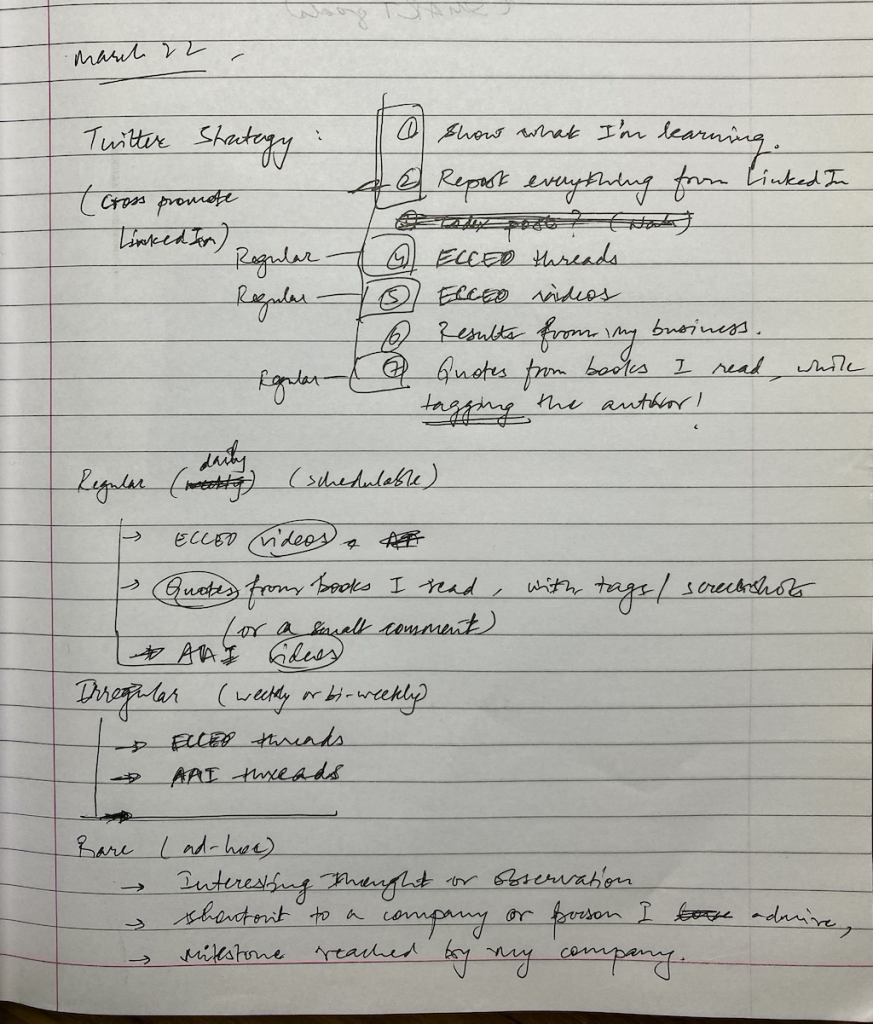I recently had a business failure.
Long story short, here’s the bullet list of lessons learned. If you’re not me, and you’re reading this, just know that I wrote this for myself. It may or may not apply to you.
- Focus
If I had to distill everything into one word, it would be focus. Focus, focus, focus. FOCUS! Ignore the free ice cream van. - Keep focusing
This is not a joke. Stop strategizing or changing things. Just STOP! Once you make a decision, don’t switch directions until you’ve burned the fucking tires and they’re melting on the tarmac. Finish all your thinking before the decision, not after. Set 1-2 metrics/lead measures and chase them into the horizon like a mindless dog. - Velocity
Blaze through your day. If you have time for idle bullshit, or if you’re slowing down, close shop. Your venture is dying anyway. Sure, smell the flowers – but do it quickly. Get used to doing the work of three people. - Only hire people who are better than you.
Your team’s talent density/concentration should keep going UP over time. Each new hire should improve the average quality of your existing team members. It’s the only criterion that matters in the end. If you can’t hire someone truly remarkable, don’t hire. If a candidate likely keeps the average quality of your team constant, don’t hire. You don’t have the luxury of time spent coaching and training people to make them “better.” You’re an entrepreneur, not a manager. Stop fucking managing. - The best time to fire someone is the first time it crosses your mind
Harsh but true. The first time it crosses your mind, talk to the person to figure out what’s going on. If you don’t walk away with huge confidence that you should keep them, fire them immediately. But do it right by them – it was your mistake to hire them, so they deserve to be treated fairly. - It’s okay to be tough
Don’t strangle your inner toughness. Don’t make an “effort” to be nice. Nobody cares about “nice” people. Let people self-select themselves out of your life. - (Bonus) Expect Success.
You cannot be in doubt when fighting a monster. You have to have the conviction: when I drive my sword into its heart, the monster will die, and I will emerge victorious.
You don’t need to be sure of how you will get your sword to reach the monster’s chest. You just need to have the conviction that it will happen, and all you have to do is get over the obstacles in the way.
Without this conviction, you will prepare for failure instead of success – and your failure becomes a self-fulfilling prophecy. You will simply keep dodging the monster’s attacks, trying to stay alive, until you’re tired and dead.
Expect to emerge victorious in the end. Expect to hold success in your hands. Visualize victory.


